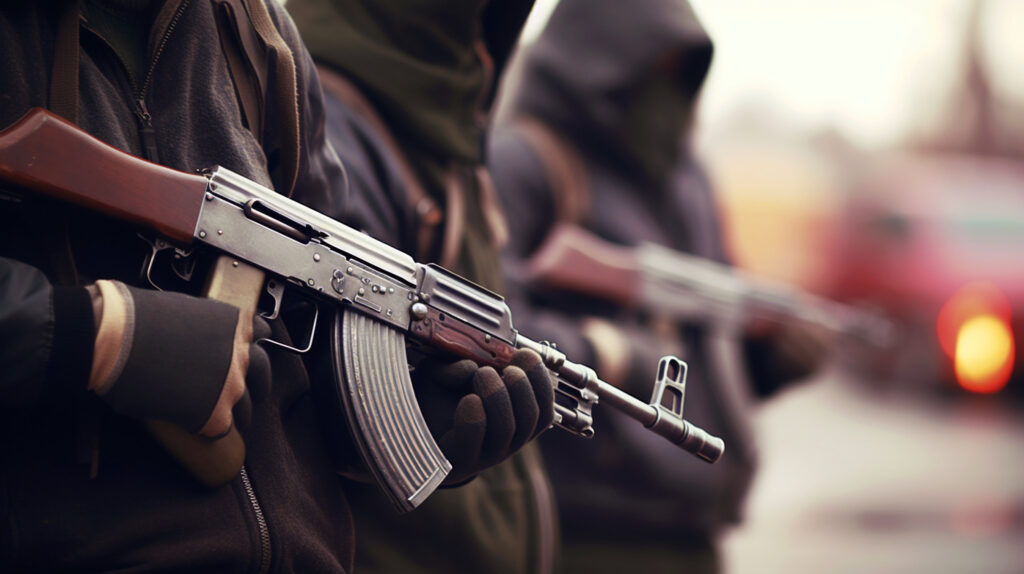
Nearly 40 years ago, terrorism expert Brian Michael Jenkins made this claim, “The difficulty of defining terrorism has led to the cliché that one man’s terrorist is another man’s freedom fighter, implying that there can be no objective definition of terrorism, no universal standards of conduct in peace. That is not true.” Yet, this line of thinking remains a cliché thoughtlessly espoused to muddy the distinctions between legitimate and illegitimate forms of warfare. Even as recently as the past week, the terrorist organization Hamas has been referred to in similar language on a major news outlet in the United States in relation to the attack on Israel.
Freedom fighters and terrorists often do have many similarities. Both groups take part in a violent struggle to achieve a political goal, usually the overthrow or removal of an established government. Both groups tend to be non-state actors, that is, their political actions are not carried out on behalf of a sovereign nation-state.
What then separates a freedom fighter from a terrorist?
The moral requirements for going to war
The primary difference is how they align with the criteria of the just war tradition. First, let’s measure them against the jus ad bellum, the moral requirement for going to war:
1. Just Cause: Like nation-states, non-state actors may have just and proper reasons for going to war. For example, they may be acting in self-defense to prevent genocide or acting to restore human rights wrongly denied.
2. Proportionate Cause: Again, like established nation-states, non-state actors could go to war to prevent more evil and suffering than their warfare is expected to cause.
3. Right Intention: Non-state actors may also have the right intentions for going to war. They could, for instance, be motivated by Christian love and pursuit of justice instead of an illegitimate intention to go to war, such as revenge.
4. Right Authority: There is nothing inherently special about a nation-state that gives them a special status as the right authority. However, this criterion poses a special hurdle for non-state actors since what would constitute a right authority for them is often unclear. As Eric Patterson notes, one distinction between modern freedom fighters and terrorists is that freedom fighters accept at least two forms of authority: “The first stems from customary international law and is now codified in the Geneva Conventions; the second is that they submit to some form of organized authority (i.e., ‘are under the command of a person responsible for his subordinates’).”
5. Reasonable Chance of Success: This is the primary criterion that works against the modern terrorist engaging in a just war. The use of terrorist tactics tends to lower the chances of success in warfare and offers specific challenges to establishing a just peace once the war is over. As historian Charles Townsend says, “Although the 20th century produced plenty of successful ‘wars of national liberation”, often with a significant terrorist dimension, none succeeded by terrorism alone.”
6. Last Resort: Another key difference between freedom fighters and terrorists is that the former almost always consider warfare to be the last reasonable and workable option for addressing their grievances. In contrast, terrorists rarely seek to exhaust reasonable peaceful alternatives, such as diplomacy or non-violent political pressure, before succumbing to violence.
Why terrorism is unjust
The jus ad bellum by itself offers distinctions between terrorists and freedom fighters. But most salient differences between freedom fighters and terrorists is in the criteria for jus in bello (criteria for just execution of war), particularly on the issue of discrimination.
The criterion of discrimination includes two key components: “innocence” and “deliberate attack.” The first rule of just warfare is that we do not target or intentionally kill the innocent. “Innocence,” says just war theorist Michael Walzer, means those non-combatants who are not materially engaged in the war effort. “These people are ‘innocent’ whatever their government and country are doing and whether or not they are in favor of what is being done.” Walzer explains that, “The opposite of ‘innocent’ is not ‘guilty,’ but ‘engaged.’ Disengaged civilians are innocent without regard to their personal morality or politics.”
This is precisely what makes terrorism wrong, since it is defined, says Walzer, as the random killing of innocent people, in the hope of creating pervasive fear. “Randomness and innocence are the crucial elements in the definition,” he says. “The critique of this kind of killing hangs especially on the idea of innocence, which is borrowed from ‘just war’ theory.”
Sadly, modern warfare almost always leads to innocent civilian casualties—especially in urban environments. The key distinction, therefore, is that terrorists target the innocent for deliberate attack while “freedom fighters”—and anyone else engaged in just warfare—never do. This provides both a moral and strategic challenge for nations fighting against terrorists, since we do not want to become like the evil we are opposing. “Terror must never be answered with terror,” says historian Caleb Carr, “but war can only be answered with war, and it is incumbent on us to devise a style of war more imaginative, more decisive, and yet more humane than anything terrorists can contrive.”
Like you, the Ethics and Religious Liberty Commission (ERLC) is grieved by the acts of terrorism perpetrated against those made in God’s image in the Middle East, and we are praying for peace. The ERLC has led an effort among Southern Baptist leaders and other evangelicals to organize support for Israel’s right to exist and defend itself and urge policymakers to confront evil, promote peace, and protect the vulnerable. We also ask Christians to pray for the preservation and salvation of those in the region and give toward their needs through SEND Relief.
















